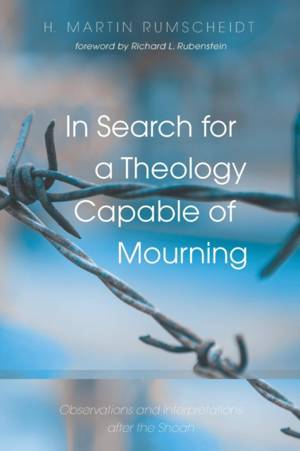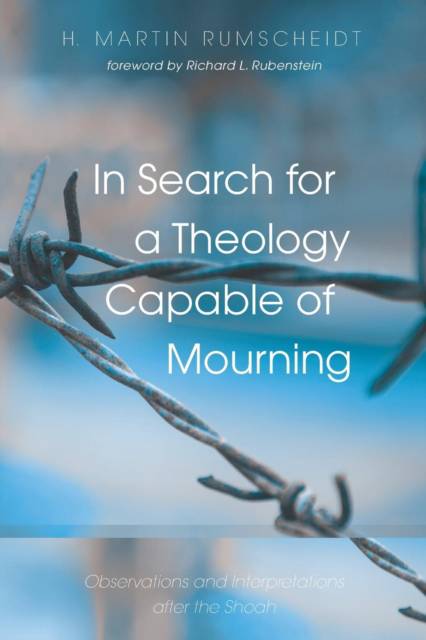
- Afhalen na 1 uur in een winkel met voorraad
- Gratis thuislevering in België vanaf € 30
- Ruim aanbod met 7 miljoen producten
- Afhalen na 1 uur in een winkel met voorraad
- Gratis thuislevering in België vanaf € 30
- Ruim aanbod met 7 miljoen producten
Zoeken
In Search for a Theology Capable of Mourning
Observations and Interpretations After the Shoah
H Martin Rumscheidt
Paperback | Engels
€ 49,95
+ 99 punten
Uitvoering
Omschrijving
To what extent are the children of Holocaust perpetrators to feel remorseful or responsible for their parents' wrongdoing? Is the yearning by those offspring of Nazi sympathizers for forgiveness justified, or should they separate themselves from their parents or relatives and ignore the history? Such dilemmas have gnawed at theologian Martin Rumscheidt ever since, at age eighteen, he discovered his father's complicity in using Jewish slave labor at his workplace, IG Farben. He has written and spoken extensively about his journey in search of what he calls a theology of mourning that would preserve his concept of the reality of God and still recognize the reality--at times grim reality--of life.
Specificaties
Betrokkenen
- Auteur(s):
- Uitgeverij:
Inhoud
- Aantal bladzijden:
- 270
- Taal:
- Engels
Eigenschappen
- Productcode (EAN):
- 9781532619007
- Verschijningsdatum:
- 20/10/2017
- Uitvoering:
- Paperback
- Formaat:
- Trade paperback (VS)
- Afmetingen:
- 150 mm x 226 mm
- Gewicht:
- 399 g

Alleen bij Standaard Boekhandel
+ 99 punten op je klantenkaart van Standaard Boekhandel
Beoordelingen
We publiceren alleen reviews die voldoen aan de voorwaarden voor reviews. Bekijk onze voorwaarden voor reviews.











